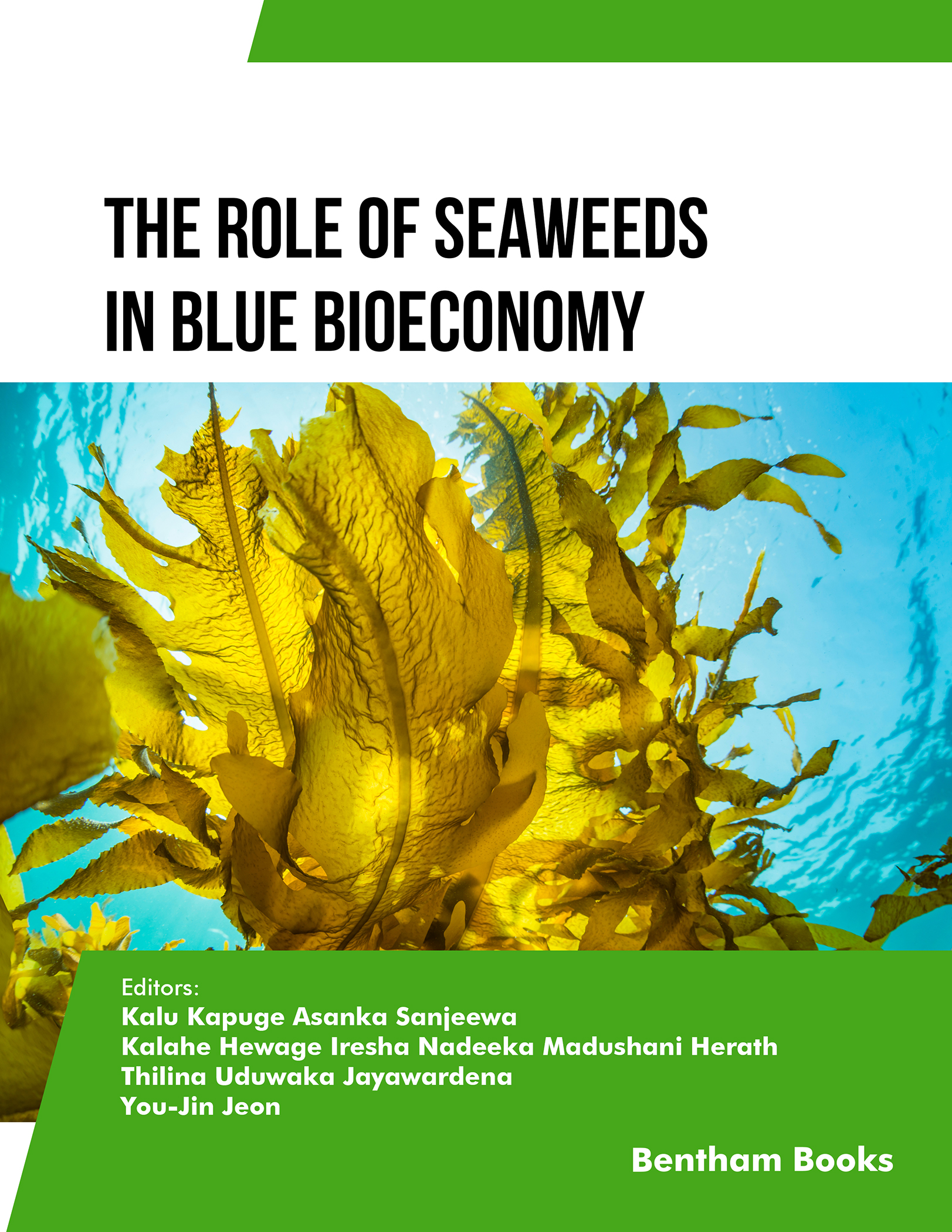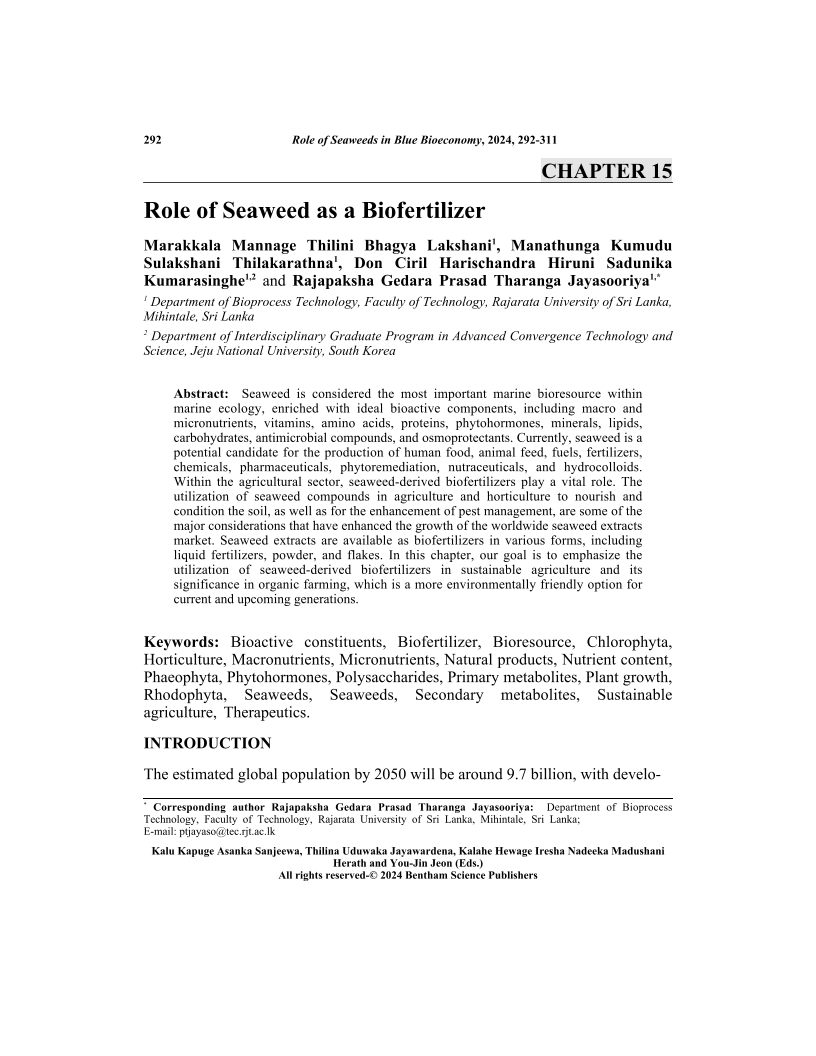Role of Seaweed as a Biofertilizer

- Authors: Marakkala Mannage Thilini Bhagya Lakshani1, Manathunga Kumudu Sulakshani Thilakarathna2, Don Ciril Harischandra Hiruni Sadunika Kumarasinghe3, Rajapaksha Gedara Prasad Tharanga Jayasooriya4
-
View Affiliations Hide Affiliations1 Department of Bioprocess Technology, Faculty of Technology, Rajarata University of Sri Lanka, Mihintale, Sri Lanka 2 Department of Bioprocess Technology, Faculty of Technology, Rajarata University of Sri Lanka, Mihintale, Sri Lanka 3 Department of Bioprocess Technology, Faculty of Technology, Rajarata University of Sri Lanka, Mihintale, Sri Lanka 4 Department of Bioprocess Technology, Faculty of Technology, Rajarata University of Sri Lanka, Mihintale, Sri Lanka
- Source: The Role of Seaweeds in Blue Bioeconomy , pp 292-311
- Publication Date: May 2024
- Language: English
Role of Seaweed as a Biofertilizer, Page 1 of 1
< Previous page | Next page > /docserver/preview/fulltext/9789815223644/chapter-15-1.gif
Seaweed is considered the most important marine bioresource within marine ecology, enriched with ideal bioactive components, including macro and micronutrients, vitamins, amino acids, proteins, phytohormones, minerals, lipids, carbohydrates, antimicrobial compounds, and osmoprotectants. Currently, seaweed is a potential candidate for the production of human food, animal feed, fuels, fertilizers, chemicals, pharmaceuticals, phytoremediation, nutraceuticals, and hydrocolloids. Within the agricultural sector, seaweed-derived biofertilizers play a vital role. The utilization of seaweed compounds in agriculture and horticulture to nourish and condition the soil, as well as for the enhancement of pest management, are some of the major considerations that have enhanced the growth of the worldwide seaweed extracts market. Seaweed extracts are available as biofertilizers in various forms, including liquid fertilizers, powder, and flakes. In this chapter, our goal is to emphasize the utilization of seaweed-derived biofertilizers in sustainable agriculture and its significance in organic farming, which is a more environmentally friendly option for current and upcoming generations.
-
From This Site
/content/books/9789815223644.chapter-15dcterms_subject,pub_keyword-contentType:Journal -contentType:Figure -contentType:Table -contentType:SupplementaryData105

